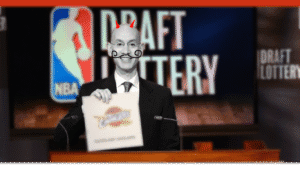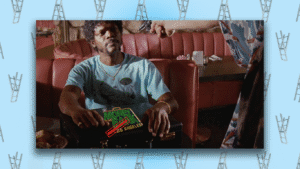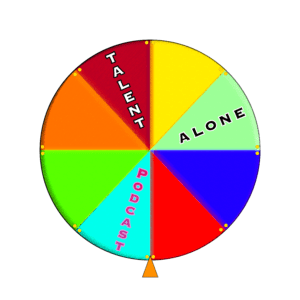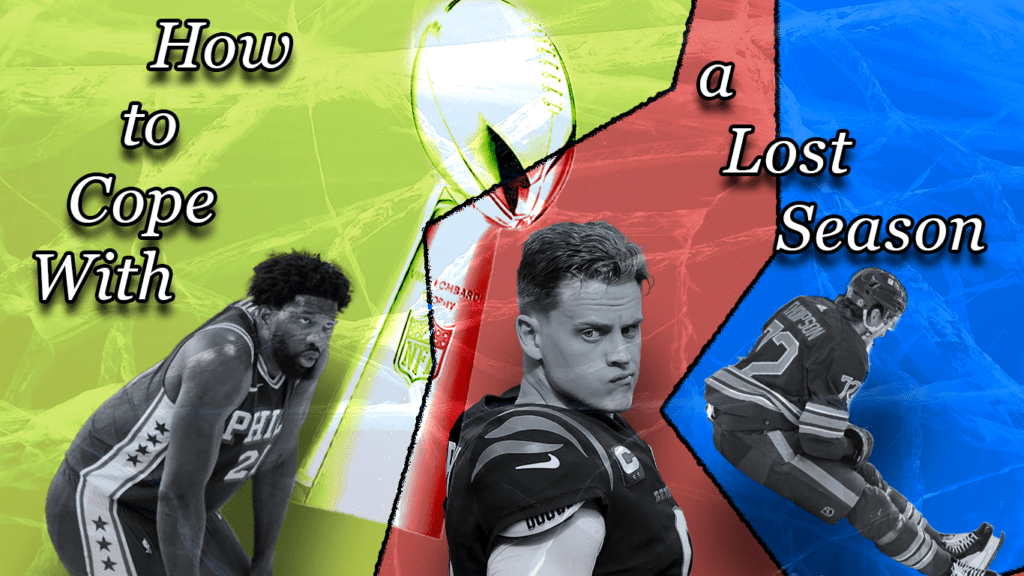
As sports fans, we all go into a new season with a sense of hope and optimism fueled by our team’s perceived potential. Much like an abusive relationship, we tell ourselves it will be different this time. My heart won’t get broken, this team can do it. We can make the playoffs with this squad. Hell, we could even win it all. For many, expectations won’t match reality. Game by game, week by week, as the months go on many of us watch as our favorite team’s season dwindles away.
This is something very hard to accept as it’s happening. Whether it’s a 17-game NFL season or the long slate of 82 games in the NHL and NBA. It’s easy to get lost in the grind until you check the standings and realize the season is halfway over. Then we utter a sad phrase along the lines of, “Hey we’re only six games out of a wild card spot. Go on a little streak and we’ll be back in it.”
Yeah, maybe if all the teams ahead of you stopped playing.
Witnessing your team fumbling their way to a losing record and a mid-round draft pick, or maybe if you’re lucky, a first-round playoff exit, isn’t easy to handle. However, you are not alone, and you can get through it. It may seem confusing, complex, and downright painful, but here’s some important information to help you accept a lost season.
When attempting to tackle any sort of emotional problem, not only do you need to know healthy coping methods, but it’s important to better understand the process of what you are going through. The five stages of grief are denial, anger, bargaining, depression, and finally, acceptance. These steps are often used to explain how people process death and the loss of someone in their lives. These same steps apply when dealing with the sports grief of a lost season.
Denial
This step usually kicks in around the quarter mark of the year. Your team hasn’t come out of the gate strong and it’s begun to show in the standings. You attempt to stay optimistic.
“We’re banged up. Just gotta get healthy.”
This is denial. When it comes to the injuries, ask yourself an important question, who’s injured? A bench forward that plays 13 minutes a game probably isn’t the reason your team is shooting 36% from the field.
“It’s still early, boys gotta shake off the rust and they’ll get going.”
When it comes to this form of denial, it’s best to rethink what your preseason expectations were based on. If you had a player score a career-high in points last year, that’s great. However, if that player has been in the league for ten years, it may have been unrealistic to think he would do as good or better the next year.
“Hey, that kid we drafted got hot last year. Scored four goals in his last three games.”
Denial. That same kid scored 10 goals all year. He was not going to come back and score 35 this year.
When it comes to getting through the denial phase, it’s important to reassess what you expected to happen in an attempt to see the holes in your thinking. You can do this by simply taking a look at your team’s previous success and the events that followed. Meaning, how did the team perform last season, and what moves were made to improve in the offseason? If both those things line up equally low on a bar graph, the odds of having a better season this year were also low.
Anger
After all the excuses you made, you’ll eventually reach a tipping point. When forced to see a reality you were denying, reacting in anger is a normal human response.
“Our defense wasn’t bad because of the scheme, the players on defense just aren’t ANY GOD DAMN GOOD!” or “ Of course, our biggest free agent signing isn’t working, he’s 35 YEARS OLD AND HAS HAD TWO ACL TEARS!”
In life anger is also a common response to things we can’t understand or explain. For example, when a player goes into a scoring slump (looking at you Tage Thompson) it’s hard to explain. Or when a once hot goalie starts getting beaten five hole by everybody including the zamboni driver (looking at you Cam Talbot) it’s tough to understand what changed.
Anger can also erupt due to things that seem unfair, such as injuries. Just recently it was announced that 76ers star Joel Embidd will officially be going under the knife to repair a torn meniscus. In the short time since, there have been multiple police reports of assault involving blunt force trauma by steak and cheese drenched hoagies to the skull.
It’s important not to internalize this anger. You have to find a healthy and safe way to let it out. Vent to your friends or significant other about everything the team is doing wrong. If they start giving short responses such as “Yeah I know” or “Right? Crazy”, It doesn’t mean they’re not interested, they are just at a loss for words by your sports genius. If talking to those close to you isn’t enough, it’s time to hit social media. Start posting those hot takes. Trade that guy, fire that coach, indict the general manager. It doesn’t matter who it’s about or how hot the take is, it’s social media, no one’s gonna hold you to it later.
Bargaining
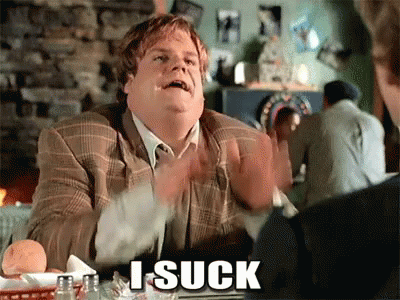
No, this stage has nothing to do with making trades. That’s something that’s part of Denial. For example, “Teaming up ball-dominant Kyrie with ball-dominant Luka and a bunch of bench players disguised as starters is winning us a ship.”
Bargaining involves reflection. You think of the things you can change about yourself to avoid these situations.
“I’m not going to get swept up in a new coach anymore. I should’ve known Rex Ryan and his 46-50 record as the Jets head coach wouldn’t get the Bills to the playoffs.”
(This may have come from personal experience)
“Why did I think replacing a rising star like Matthew Tkachuk with 30-year-old Johnathan Huburdeau would work? “
It also focuses on constantly looking back at the situation and replaying it for answers as to what caused everything to go wrong. It’s filled with what-ifs and sliding doors.
“What if we had bit the bullet and moved on from Draymond and Klay? Would our roster be better built to support Steph Curry?”
“What if we didn’t get screwed by the draft lottery, and got Connor McDavid? Would we not have the longest active playoff drought in the NHL?” (Once, again this is possibly a personal example)
If you continue dwelling on the past like this it doesn’t lead to positivity. What this stage actually leads to is self-hatred. As you rethink what happened, you end up just honing in on your own perceived imperfections and wrongdoings. You often determine that this was your fault and that you should have done things differently. When in reality, no matter what you did, Ben Simmons will always be afraid to shoot the basketball.
It’s important to remind yourself of one very simple truth. The past is the past and you can’t change it. If you could, Knicks fans would’ve convinced Melo to make it work with Jeremy Lin. (RIP Linsanity. You burned bright and were taken from us too soon)
If a Time Machine existed, the Broncos wouldn’t have traded for Russel Wilson and the Trailblazers wouldn’t have drafted Sam Bowie instead of that Michael Jordan kid.
To ease the overthinking and obsessive nature of this stage, you need to take the Elsa approach. Let it go.
Depression
I won’t sugarcoat it, this stage can be the worst and sometimes longest. You denied your team’s problems, you erupted in anger when you could deny no more, you’ve overanalyzed the past and your shortcomings. Now comes the hopelessness that is the sad dark reality of being a fan of any sports team. An important thing to remember though, is that it’s okay to feel this way.
The Montreal Canadiens made the Stanley Cup finals in 2020-2021. Next season they went 22-49-11 and were dead last in the NHL. After experiencing that, there was nothing wrong with their fans closing the blinds and crawling in bed, only leaving to eat a massive plate of poutine to numb the pain.
Robert Griffin III’s strong rookie year ended with him blowing out his knee and he was never the same. Next year, RG3 threw 16 touchdowns to 12 interceptions while his team went 3-13 and found themselves back on the outside of the playoffs looking in. If Washington [REDACTED] fans wanted to kill a bottle of scotch while sobbing on the steps of the Lincoln Monument at 2 AM, who’s to tell them it’s wrong?
In a way, you have to embrace this stage. However, you have to do it with some key things in mind. You’ve just suffered a traumatic experience and it’s okay to be going through this time of depression, just remember, it’s temporary. It’s all part of healing and it too shall pass.
Acceptance
The final stage. The light at the end of the long dark tunnel. After going through everything else in this process you finally are able to accept reality. Some get to this point prior to the season-ending. Even if it takes them until the letter E is added next to their team in the playoff standings, they still manage to come to terms with the truth that the season is a loss before the final game takes place. For many others though, they won’t be able to accept what happened until after the year is over. Either way, the important thing is to finally make peace with the fact that your team was not as good as you thought, things didn’t go your way, and there’s always next year.
Signs that you’ve reached acceptance include, spending most of your time on websites like Spotrac or CapFriendly, making note of every single upcoming free agent and breaking down your team’s cap space to the last penny, or spending your entire lunch break at work using the NBA trade machine.
Other signs entail watching more college tape than you have all season, doing mock drafts, watching March Madness, or actually learning what players are in the NHL draft outside the expected number one pick. If your spouse asks why you’re up in the middle of the night watching the KHL, you can proudly tell them, it’s because you’ve found a healthy closure to how your hockey team’s season went. Also, this Gorbachev kid has a wicked one-time, knee-down clapper, he’ll be a steal in round five.
Acceptance. Obsession. Those lines are blurry when it comes to fandom.
It’s important to note that a side effect of acceptance is the natural formation of long lasting grudges. Just ask a T-Wolves fan what they think of Jimmy Butler.
Hopefully you now have a better understanding of how to accept when your team’s season is lost and are better equipped to get through it. It can be hard, but as time goes on it gets easier. Keep this article in mind, and next time it happens you’ll get through it faster. After all, there will be a next time, followed by even more lost seasons beyond that. Because sports are painful and pain is inevitable.
